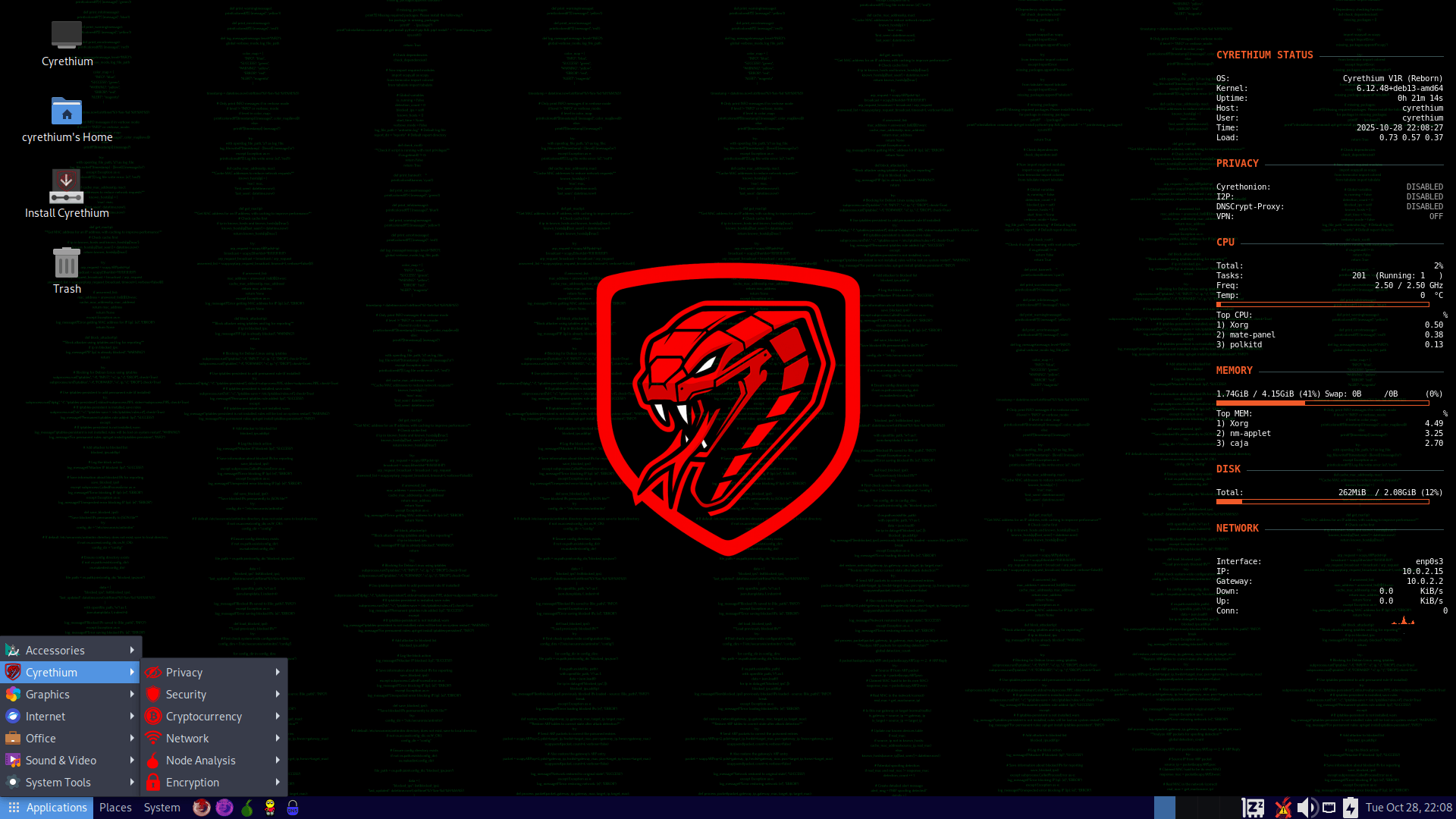Cyrethium is a Debian-based Linux distribution focused on privacy and security. It can route all incoming and outgoing internet traffic through the Tor network. DNSCrypt-Proxy and I2P Router are pre-configured.
It provides strong protection against browser attacks with custom hardened Firefox variants. The distribution hosts a wide range of tools designed from scratch for Cyrethium and includes multi-layered hardening against cyber attacks. There are 4 different versions available: 2 core and 2 respins.
It also provides DNS‑Crypt Proxy to encrypt DNS queries. The distribution includes a tool called Chaosec, which manipulates network traffic to mix real traffic with fake traffic, making it resilient against traffic analysis, MITM, and correlation attacks.
Cyrethium features two specially designed browsers: Hardened Firefox and Amnesic Firefox. These browsers come with various security settings and extensions to protect against browser-based attacks. Hardened Firefox provides a secure experience for everyday use, while Amnesic Firefox focuses on strict privacy and clears all usage traces upon closing.
The system is hardened across multiple layers, from the kernel to user space, making exploitation significantly more difficult. Additionally, Cyrethium includes dedicated tools for detecting network and system-level cyber attacks.
Cyrethium contains numerous custom-designed privacy, security, cryptography, attack detection, and encryption tools. With around 30 integrated tools, the distribution offers a comprehensive privacy ecosystem. It is designed with every usage scenario and threat profile in mind.

| Working state: | Active |
| Desktop: | MATE |
| Init Software: | systemd |
| Package Management: | APT |
| Release Model: | Rolling |
| Platforms: | x86_64 |
| Home Page: | cyrethium.org |
| Developer: | Cyrethium |
| This article is part of our Big List of Active Linux Distributions. |
What's a Linux distribution ("distro")? |
| A distro provides the user with a desktop environment, preloaded applications, and ways to update and maintain the system. Each distro makes different choices, deciding which open source projects to install and provides custom written programs. They can have different philosophies. Some distros are intended for desktop computers, some for servers without a graphical interface, and others for special uses. Because Linux is an open source operating system, combinations of software vary between Linux distros. |

